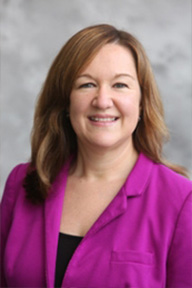
Susan Gordon
How can work for your classes benefit your personal life and improve your well-being? In some recent research, Tim Self, Phil Jolly and I looked at how work-family enrichment enhances the psychological well-being of hospitality managers and what we found could be applied to anyone’s life stage. The work environment of a restaurant or hotel is one in which the number of work hours varieseach day. Shifts can occur during the evenings, weekends and holidays, and the business level fluctuates daily. Think about your life as a college student completing coursework. The times you are in class may be differenteach day, you might work on assignments during the evenings and on weekends, and your courseworkloadscould varybased on aspects such as tests and projects.
While work is often thought of as conflicting with family, like academic responsibilities might conflict with your personal interests, work-family enrichment involves work roles enhancing family performance and family roles enhancing work performance.As a college student, your family might consist of your friends, roommates, fraternity brothers/sorority sisters, co-op housemates, etc. The concept of work-family enrichment suggests that when individuals gain knowledge, understand different viewpoints, are successful and feel happy in their work and family roles, they experience a sense of enrichment that positively influences their overall well-being.
Our study found that when hospitality managers experienced work-family enrichment, they were more engaged at work and their emotional and social well-being improved. This suggests we should not fight to prevent work from impacting our personal lives and vice versa, but rather we should focus on how one can benefit the other. Work-family enrichment encompasses gaining skills, acquiring knowledge and achieving a sense of accomplishment. These are all aspects you obtain through classes and coursework and can come from the integration of your personal life and academic pursuits. My research team suggested hospitality organizations can help managers improve their well-being through development by assigning them to projects, sending them to classes and allowing them to fulfill personal goals such as learning a language or practicing an instrument as part of theirprofessional goals.
So, how can you apply this concept as a college student to enrich your academic and personal life?
- Lean on your Purdue family for support when working on class projects or preparing for tests. Tell them what assignments and deadlinesyou have for classes but also what personal goals you want to achieve. If you and a “family member” are in the same class, work together to set goals for success in the class but also personal goals such as working out, cooking a meal together or participating in an event that helps you take a break from class work.
- When given the option of how to complete a class assignment or select a topic for a paper or project, do not passively choose something just to complete the assignment but choose something of interest to you or that sparks your creativity. Talk to your professors about making assignments more personal while still meeting course learning outcomes. You might have a great idea that your professor has not considered.
- Celebrate your academic and personal successes –big and small –with your Purdue family. Achieving your goals will enrich your life and improve your well-being, so it is important to celebrate these successes and keep the momentum going.
Susan Gordon: Susan Gordon is an associate professor in the White Lodging-J.W. Marriott, Jr. School of Hospitality & Tourism Management at Purdue University. Her research focuses on employee well-being in the hospitality industry, which is known for stressful working conditions including long hours, unstable schedules, emotional labor when serving guests and physically demanding jobs. She is particularly interested in how organizations can improve employee well-being through increasing supervisor and organizational support. Recent ongoing projects include support of employee well-being for women and those in racial-ethnic minority groups. Prior to entering academia, Gordon worked for more than 10 years in the hospitality industry, holding various management positions with Walt Disney World, Starwood Hotels & Resorts, and Marriott International.
WELL-BEING RESOURCES:
Office of the Dean of Students, Student Support Services
Counseling and Psychological Services

